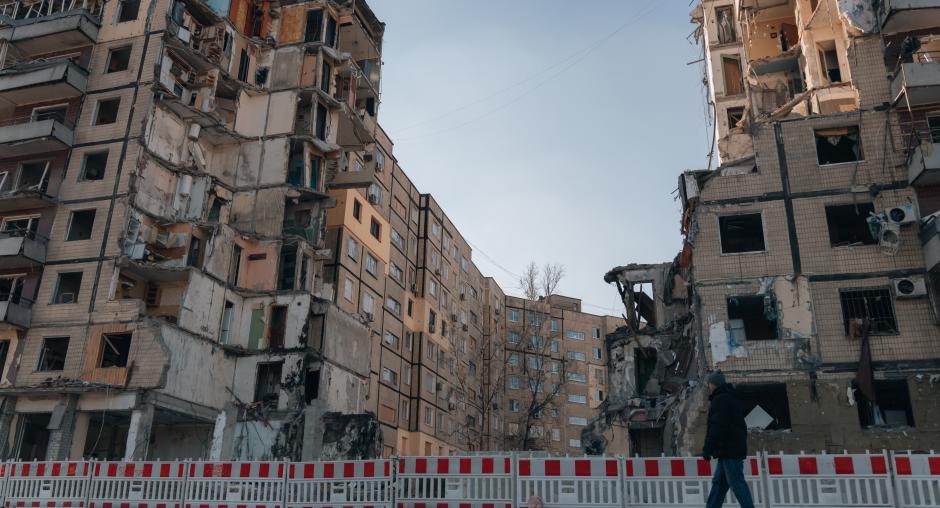After two years of war, continuing violence inflicted on civilians in Ukraine is of grave concern, says international human rights office ODIHR

WARSAW, 23 February 2024 – As the war in Ukraine following Russia’s military attack enters its third year, the suffering of Ukrainian civilians is worsening as indiscriminate military strikes continue together with cases of torture, arbitrary detention, and other serious human rights violations, the OSCE Office for Democratic Institutions and Human Rights (ODIHR) said in a statement today.
“The terrible consequences of this war for civilians and particularly children cannot be overestimated,” said ODIHR Director Matteo Mecacci. “As the situation deteriorates, people are increasingly left with no choice but to flee their homes or stay and live in fear.”
ODIHR has been monitoring violations of international law in Ukraine and their impact on civilians and prisoners of war since 24 February 2022. Interviews with more than 330 survivors and witnesses of violations, both in Ukraine and outside the country, bear testimony to the continued disregard shown by the Russian Federation for the basic principles set out in international humanitarian and human rights law. The ultimate aim of this work is to help ensure accountability for violations of international law.
The four monitoring reports published to date provide details of violations on the ground, including deliberate attacks against civilians, arbitrary detention, torture, wilful killing and enforced disappearances. Many survivors told ODIHR that their arbitrary arrest and fear of subsequent persecution were the main reasons for leaving their hometowns. They also talked about their anxiety for family and friends left behind, following reports of increased pressure to acquire Russian citizenship and forced mobilization. At the same time, credible reports of forcible transfers and deportations of Ukrainian children continue, both within occupied areas of Ukraine and from there to the Russian Federation and Belarus.
ODIHR’s support to Ukraine has continued this year in many areas, from contributing to better lawmaking, through combating human trafficking, to increasing the involvement of the Ukrainian diaspora in post-conflict reconstruction and development. Helping to strengthen the rule of law has been a key element of the Office’s support, for example by assisting some two hundred judges in their efforts to adjudicate war crimes cases in line with national and international law. Over the last year, ODIHR has also collected hate crime data that demonstrates the impact of the war beyond Ukraine, with cases of people being targeted for speaking Russian or Ukrainian and attacks on property.
International humanitarian law, or the law of war, prohibits all parties to the conflict from carrying out indiscriminate attacks or those deliberately targeting civilians, and protects the civilian population at all times from violence and inhumane treatment. The many violations that have characterised the war in Ukraine run contrary to the OSCE’s founding principle of respect for human rights as a precondition for the security of the entire region.
